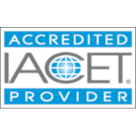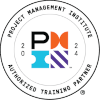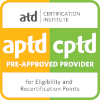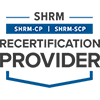Product Details
Topics Covered
- Types of business organizations
- Profit maximization
- Business ethics
- Social responsibility
- The finance function
- Stockholders
- Five Key Principles of Financial Management
- Financial markets
- Financing sources
- Life-cycle view
- Stock market
- Interest rates
- Required rates of return
Key Features
- Mobile-friendly
- Audio-enabled
- Badge and credit-awarding
- Real-world case studies
- Fully accessible
- Games & Flashcards
- Expert-supported
- Video content
Course Preview
Course Description
Learning Outcomes
- Identify and differentiate the three most common types of business organizations and the structure of each
- State the fundamental objectives of a corporation and the differences between wealth and profit maximization
- Recognize the impact of social and ethical responsibility on business
- Identify and describe the structure and functions of the finance department within an organization
- Define the principal-agent relationship and strategies for overcoming conflicts of interest and motivating managers
- List and define the five key principles that form the foundation of financial management
- Recognize and define the five key financial markets
- Identify the sources, rules, and life-cycle stages of corporate financing
- Describe the function of the stock market and the three trading venues it utilizes
- Recognize the factors related to interest rate determination and the impact of interest on an organization
Notes
This course has an "Ask the Expert" feature, which submits your questions directly to an expert in the field you are studying. Questions are answered as quickly as possible and usually within 24 hours.
As an Accredited Provider, MindEdge offers for its learning events that comply with the Continuing Education and Training Standard.
Learners must achieve an average test score of at least 70% to meet the minimum successful completion requirement and qualify to receive credit. Learners will have three attempts at all graded assessments.
Project Management Institute, , the Registered Education Provider logo, Project Management Professional, , Project Management Body of Knowledge, , Agile Certified Practitioner, -, Risk Management Professional, -, the Talent Triangle, and the Talent Triangle logo are marks of the Project Management Institute, Inc.
Information in this course has been taken from A Guide to the Project Management Body of Knowledge, (® Guide) - Sixth Edition, Project Management Institute Inc., 2017.
The following list outlines the you will earn for completing this course, based on the certifications you have.
CAPM®/PMP®/PgMP® |
|---|
| Ways of Working PDUs: 0 |
| Power Skills PDUs: 0.25 |
| Business Acumen PDUs: 0.75 |
| TOTAL: 1 |
PfMP® |
|---|
| Ways of Working PDUs: 0 |
| Power Skills PDUs: 0.25 |
| Business Acumen PDUs: 2.75 |
| TOTAL: 3 |
PMI-ACP® |
|---|
| Ways of Working PDUs: 0 |
| Power Skills PDUs: 0.25 |
| Business Acumen PDUs: 2.75 |
| TOTAL: 3 |
PMI-PBA® |
|---|
| Ways of Working PDUs: 0 |
| Power Skills PDUs: 0.25 |
| Business Acumen PDUs: 2.75 |
| TOTAL: 3 |
PMI-RMP® |
|---|
| Ways of Working PDUs: 0 |
| Power Skills PDUs: 0.25 |
| Business Acumen PDUs: 2.75 |
| TOTAL: 3 |
PMI-SP® |
|---|
| Ways of Working PDUs: 0 |
| Power Skills PDUs: 0.25 |
| Business Acumen PDUs: 2.75 |
| TOTAL: 3 |




